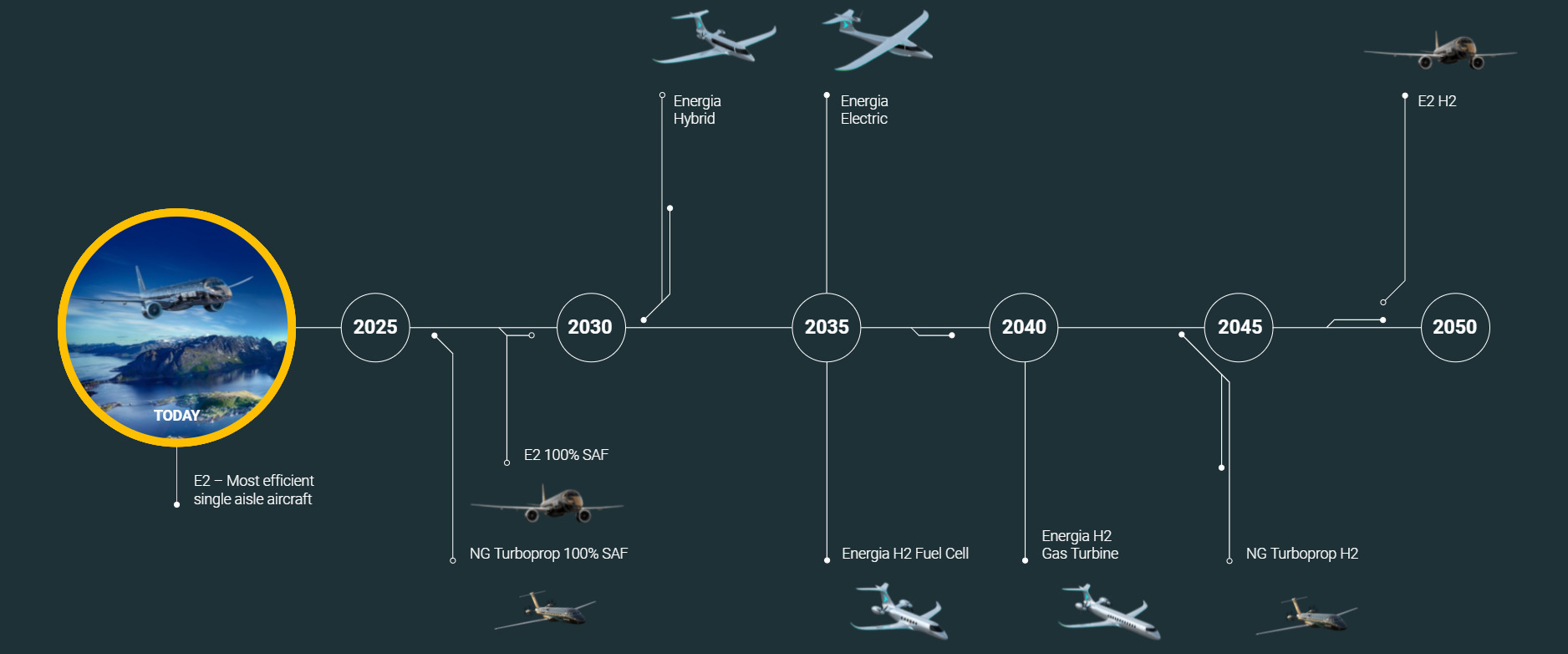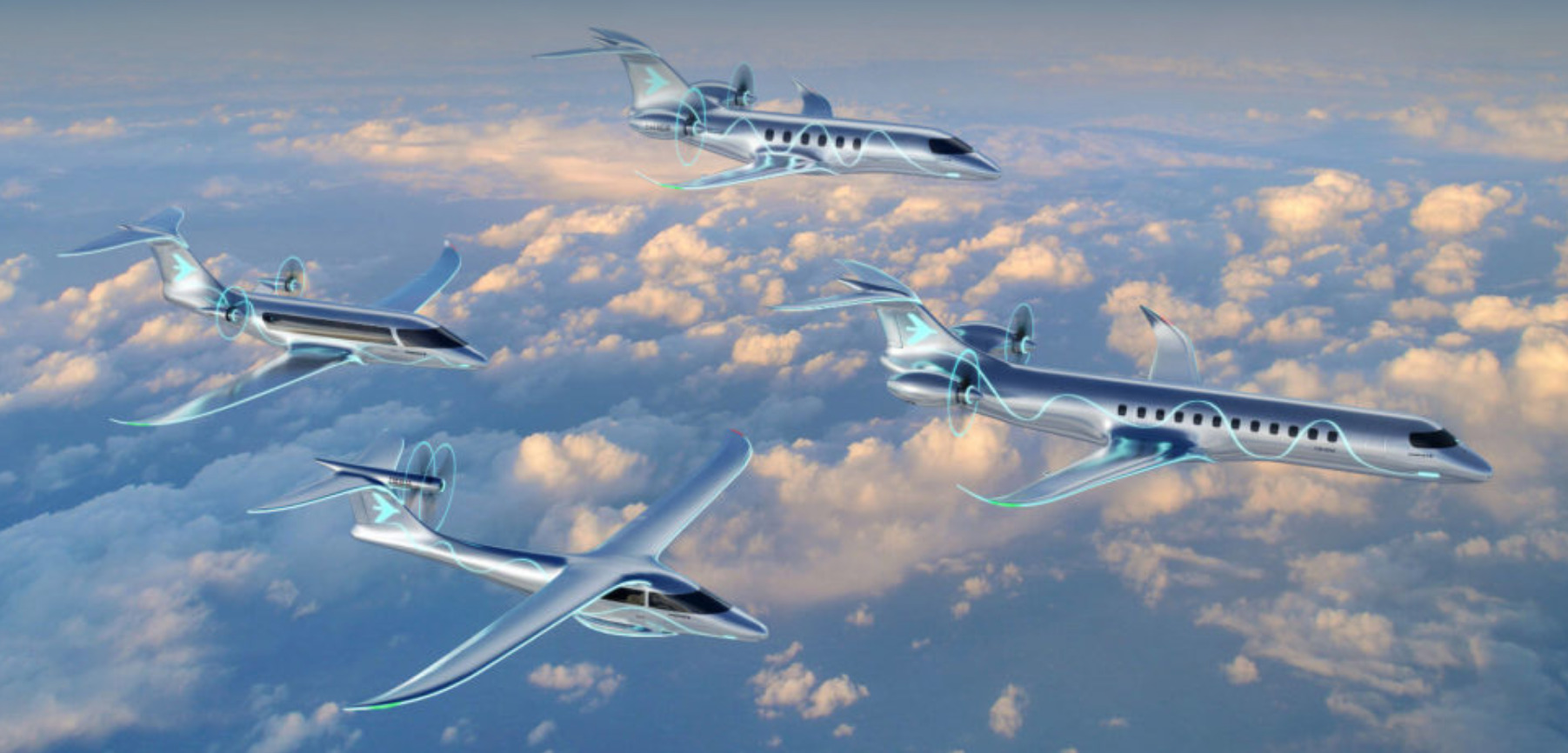Sustainability is the future: Embraer presented the four concepts of the Energia Family
CEO and President of Embraer Commercial Aviation, Arjan Meier, presented in a virtual event the company’s plan to enter the realm of sustainable aviation.
The Brazilian manufacturer unveiled four concepts and a technology development philosophy that puts it at the forefront – along with Airbus – of the race for a zero-emission, alternative-fuel commercial product.
Meier said at the presentation that there are several startups looking to build that first model and thereby dominate the market, but he believes Embraer has an advantage: experience. «Building an airplane takes time, and it seems to me that the development times of that technology from scratch for these manufacturers, and the dates they plan to enter service, are simply not realistic».
In that regard, Meier said, «our timeline is brave but realistic,» and the gradual transition laid out by the Energy Family seems to accompany that vision: from 9-seat hybrid and 100% electric aircraft in 2030 to a 35- to 50-seat regional aircraft using hydrogen in 2040, arriving at an E2-or the aircraft that replaces the last generation of E-Jets at that time-flying on hydrogen in 2045, the company is betting on incorporating novel technology into proven technology.

The four Energia Family concepts are:




The bet is risky but interesting: after laying the groundwork, the idea is to bring in partners to develop innovations in their areas of expertise and for the resulting innovation of the parties to lead to a real, affordable, and safe product. Furthermore, to the effort that Embraer is already making in research, manufacturers of engines, batteries, materials, and a significant number of additional products will be added.
Luis Carlos Affonso, Senior Vice President of Engineering, Technology and Corporate Strategy at Embraer, explained the raison d’être of the Energia family. «We see our role as developing novel technologies to help the industry achieve its sustainability goals. There is no easy or single solution to get to net zero. New technologies and their supporting infrastructure will emerge over time.»
«We are working right now to refine the first aircraft concepts, which can start reducing emissions sooner rather than later. Small aircraft are ideal for testing new propulsion technologies so that they can be scaled up to larger aircraft. That’s why our Energia family is such an important platform», he concluded.
Reflecting on the company’s sustainability strategy, Meier commented, «We will see a major transformation in our industry towards more sustainable aviation. With 50 years of experience in developing, certifying, and supporting regional aircraft, Embraer is uniquely positioned to make the introduction of new disruptive green technologies feasible».
Although Energia’s aircraft are still in the design phase, Embraer has already made progress in reducing emissions from its aircraft. It tested sustainable aviation fuel (SAF), a blend of fuel derived from sugarcane and camelina plants and fossil fuel, in its family of E-Jets. The company’s goal is to make all Embraer aircraft SAF-compatible by 2030.
Last August, Embraer flew its electric demonstrator, a single-engine EMB-203 Ipanema, powered 100% by electricity. A hydrogen fuel cell demonstrator is planned for 2025 and the company’s eVTOL, an all-electric, zero-emission vertical takeoff and landing vehicle, is being developed to enter service in 2026.
Meier closed the presentation by saying that partnering is key to the project and that as it progresses they will evaluate these association possibilities, including potential alliances with other manufacturers.
With this presentation, Embraer takes a fundamental step in the search for more environmentally friendly and efficient aviation for operators. The company’s future – as well as that of the planet – will have a lot to do with the outcome of this initiative.


Para comentar, debés estar registradoPor favor, iniciá sesión